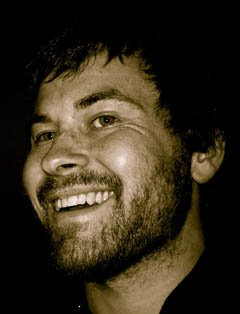On waking again at 10.30am, I checked my mobile. It was then I found out that Hizbullah had captured two Israeli soldiers in border skirmishes. Israel had started bombing areas of southern Lebanon. Fisk undoubtedly had bigger fish to fry than my interview.
On returning to my hotel last night, I had heard gunshots. I remember thinking it was pretty odd, but having no previous frame of reference for ‘normal’ behaviour in Beirut, I wasn’t sure of how to assess it. Yet the following morning, Anthony Mills reported to CNN that ‘shots of celebration’ were fired in Beirut’s southern suburbs. That would explain it.
Only yesterday I had submitted an interview request to Hizbullah in Haret Hreik (see previous post). This request looks considerably more shaky after today’s events. I’m not expecting to get a positive response back from them. One area of Haret Hreik already has security protection - Hizbullah’s Secretary-General Sayed Hassan Nasrallah lives there, and is subject to targeted assassination attempts by Israeli agents. With today developments, the entire area of Haret Hreik may have a ring of steel around it.
The Israelis, for their part, are combative. They are keen to stress that they hold Beirut responsible for what is effectively a unilateral decision made by Hizbullah (who have seats in parliament, but are by no means the leading force in Lebanese politics).
Quick phone calls to family followed. This is probably the toughest bit to do – I can understand why my parents worry, but all I can do is reassure them that all’s ok. Obviously they are worried about my contacts with Hizbullah. I must wait and see what response I get back first from Hizbullah, and then play it from there. I will be extremely surprised if my application is accepted.
I tripped up to as-Safir newspaper offices to interview the managing director, Sateh Noureddine. That also fell through. A journalism student’s magnum opus counts for little when so much else is happening in Lebanon! I arranged another meeting for next week, and headed off in the direction of Beirut’s Central District, where most of the post-war redevelopment has taken place.
And how it has been done! One can still see bombed out ruins, and Ottoman period buildings scarred with bullet holes, but then you’ll turn a corner and be knocked out by the biggest buildings you’ve ever seen. Built up to the stratosphere, just because the Lebanese can do it. Quite a contrast to the bombed-out Holiday Inn (below).


This is Lebanon proudly reclaiming its status as the Paris of the Middle East, a place where business deals can be cut, and Armani suits worn with braggadocio. I’ve never seen a Lamborghini being driven down a street before – but I saw one in the Central District. Money lines the street here.
And the guy behind it all? Rafiq Hariri, Sunni billionaire and twice Lebanon's Prime Minister – killed on 14th February 2005 in a massive bomb blast on the Corniche. Hariri’s face stares beatifically from billboards, posters and windows. One large display had a giant LCD counter, reading ‘514’ – the number of days since he was martyred.

‘Martyred’ being the operative word. I caught a taxi down to Martyr’s Square, and was advised by the driver, a greasy haired rocker: “Don’t talk politics here! 2000 Lebanese pounds. You're welcome.” Ok, then.
Martyr’s Square, on first glance, is underwhelming. A huge car park, with the beautiful bullet-ridden Martyr's statue standing rather apologetically to the side. Yet looking up, you get knocked off your feet by the new mosque, built by Hariri and completed only a few weeks before his death. Now it’s his resting place.


A tarpaulin covered memorial sits next to the mosque. Pictures of Hariri line the walls. In every one he is smiling. I refrained from getting photos here – it would have been distasteful, but suffice to say that the memorial serves as an uncomfortable reminder of how fragile Lebanon is. On the right hand side of the memorial tent are a series of photos of the intifdat-al-istiqlal - the Lebanese independence protests in Martyr's Square that followed Hariri's assassination. Up to a million people filled the square to demand an end to Syria's overlordship of Lebanon. I looked around the tent again. A steady stream of tourists and Lebanese families crept over the astroturfed floor, looking thoughtfully at each picture of Hariri, some crying.
Catching a service taxi back to Hamra, I was called into the hotel manager’s office. I thought I’d done something wrong. Instead I was told that my internet booking had ripped me off, and that if I stayed again at the Napoli I should contact them direct, for a much cheaper price. With that, the manager instructed the guy at the front desk to bring me a beer. This beer was followed by another. Not bad!
We chatted about the day’s events, but tried not to get too political. Families in the south will manage fine, he said. “It’s not unusual for them. But things could get much worse here over the next few weeks, It is a worry. But we are used to it. The main problem is that this all happens during the busy tourist season. We have about 60-90 days to make our money. That’s all going to be lost if things get worse. No-one will go near Lebanon.”
A lot more stands to be lost in the south if Israel decides to ramp up its aggression. The next few days are critical.

No comments:
Post a Comment